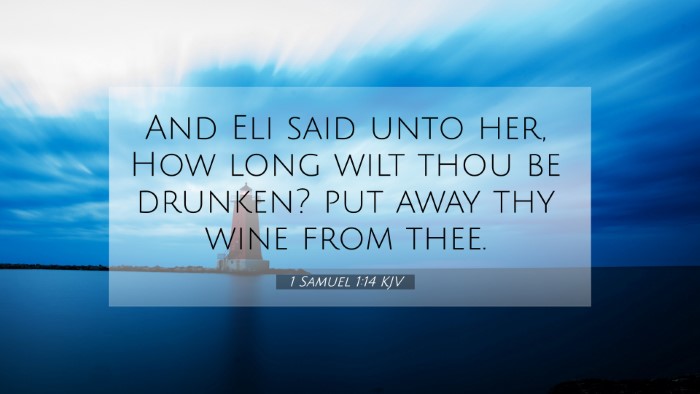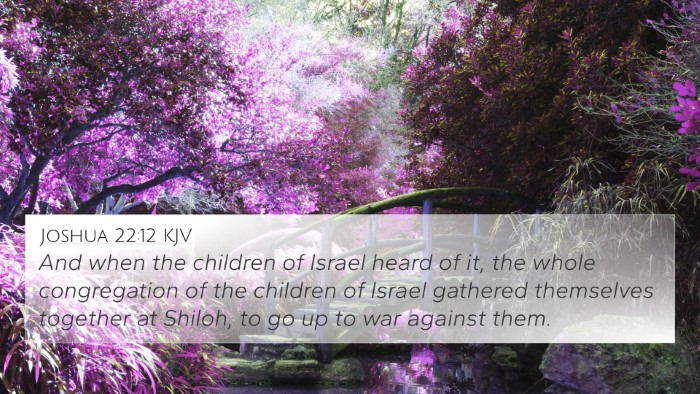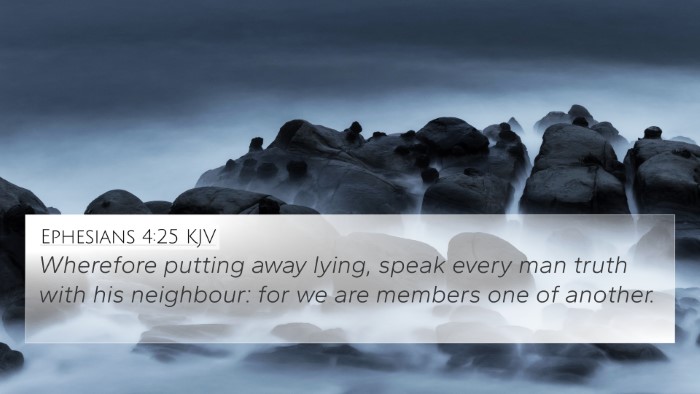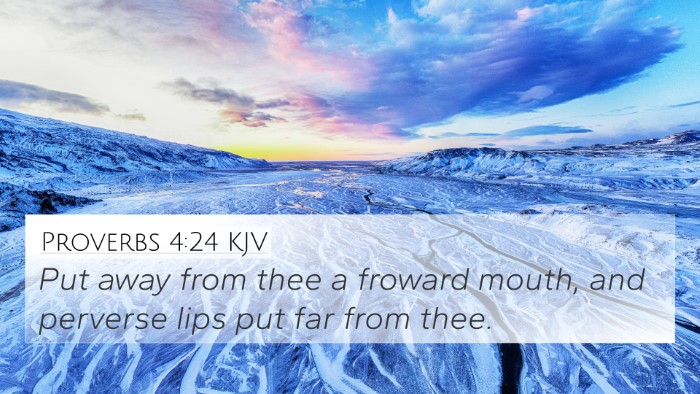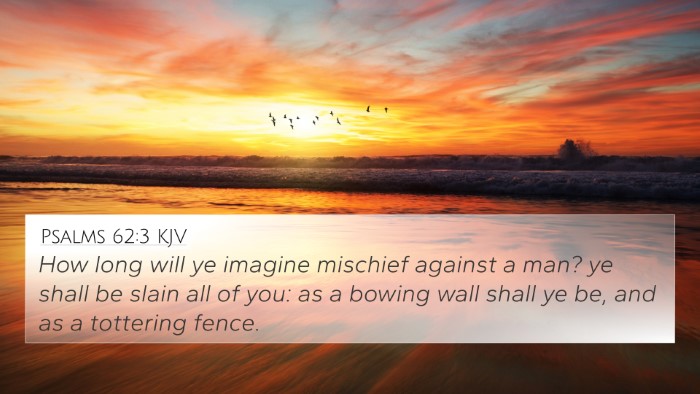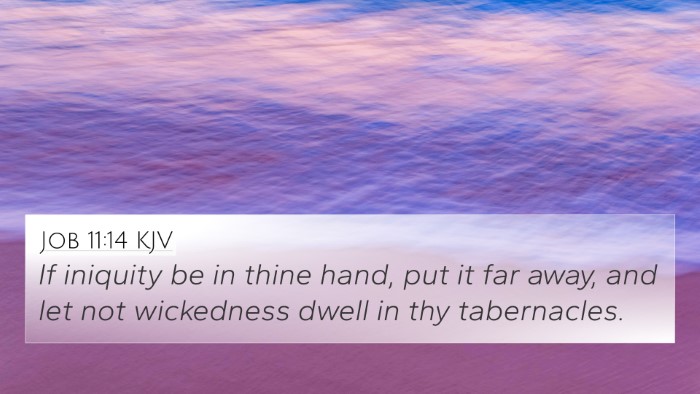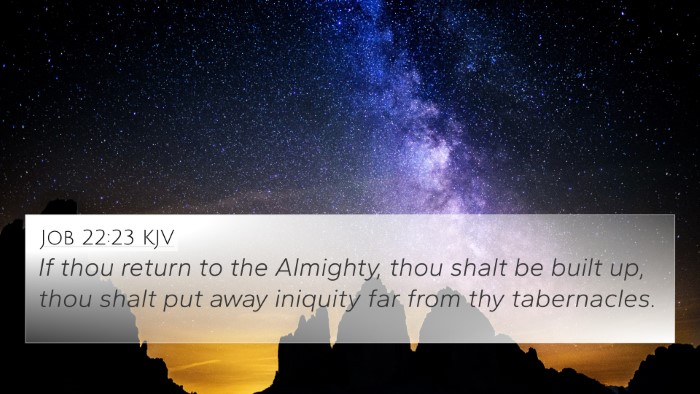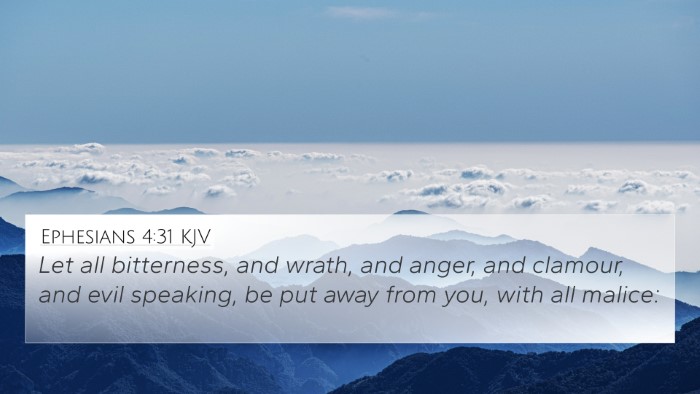Understanding 1 Samuel 1:14
In 1 Samuel 1:14, the verse reads:
"And Eli said unto her, How long wilt thou be drunken? put away thy wine from thee."
This scripture captures a moment of misunderstanding during a pivotal time in Hannah's life as she seeks God's favor in her desperate prayer for a child. The context of this verse reveals significant insights regarding human emotion, divine intervention, and the nature of faith.
Contextual Analysis
Hannah, the wife of Elkanah, was deeply distressed due to her barrenness. The anguish she felt prompted her to pray fervently at the temple, which Eli misinterpreted as drunkenness. This misunderstanding is crucial as it spotlights the blindness of religious leaders at times in recognizing sincere devotion.
Key Themes
- Desperation and Faith: Hannah's act of prayer underlines her desperation and unyielding faith in God, seeking His favor despite misunderstanding from others.
- Misinterpretation of Sincerity: Eli's proclamation illustrates how external appearances can mislead spiritual leaders and others in assessing true piety.
- Divine Attention: The passage sets the stage for God’s intervention as Hannah’s sincerity eventually leads to the birth of Samuel, a significant prophet in Israel.
Insights from Public Domain Commentaries
Matthew Henry's Commentary: Henry emphasizes the contrast between Hannah's heartfelt prayer and Eli’s surface-level judgment. He reminds readers that God looks at the heart, while people may judge by outward appearances.
Albert Barnes' Notes: Barnes discusses the importance of prayer and its appropriate conduct. He stresses that sincerity in prayer can often be misjudged and encourages an open heart toward God during times of distress.
Adam Clarke's Commentary: Clarke provides a vivid description of how emotional expressions can be misconstrued. He highlights the necessity of approaching God, irrespective of the misunderstanding that might arise from observers.
Cross-References and Thematic Connections
This verse relates to several other scriptures that enhance the understanding of its message. Here are some key cross-references:
- 1 Samuel 1:10: Hannah's prayerful distress highlights her deep emotional turmoil.
- Luke 1:13: The angel’s response to Elizabeth’s prayer reflects God’s divine timing and answers, echoing Hannah's plea.
- 1 Peter 3:12: This verse speaks to the Lord's attention to the prayers of the righteous, resonating with Hannah’s dedication.
- James 5:16: The prayer of a righteous person is powerful; illustrates the significance of fervent prayer.
- Isaiah 29:13: God’s concern about people honoring Him with their lips but having distant hearts parallels Eli's initial judgment of Hannah.
- Psalm 34:18: God is near the broken-hearted—a reminder of His closeness to those who are hurting.
- Romans 8:26: The Spirit intercedes for us in our weakness, reminding us of the profound nature of sincere prayer in distress.
Inter-Biblical Dialogue
Exploring connections between this Old Testament narrative and New Testament themes reveals the consistency of God’s character. Hannah's faith and desperation echo throughout scripture, regardless of the covenant period.
Tools for Bible Cross-Referencing
Utilizing a bible concordance can help locate related verses, while a bible cross-reference guide assists in understanding thematic connections. Engaging in a cross-reference Bible study promotes deeper comprehension of the scriptures.
Conclusion
1 Samuel 1:14 provides a rich tapestry of lessons regarding faith, sincerity, and the human condition. Through examining this verse, one is invited to explore the overarching narrative of scripture and its profound implications on our spiritual lives.


